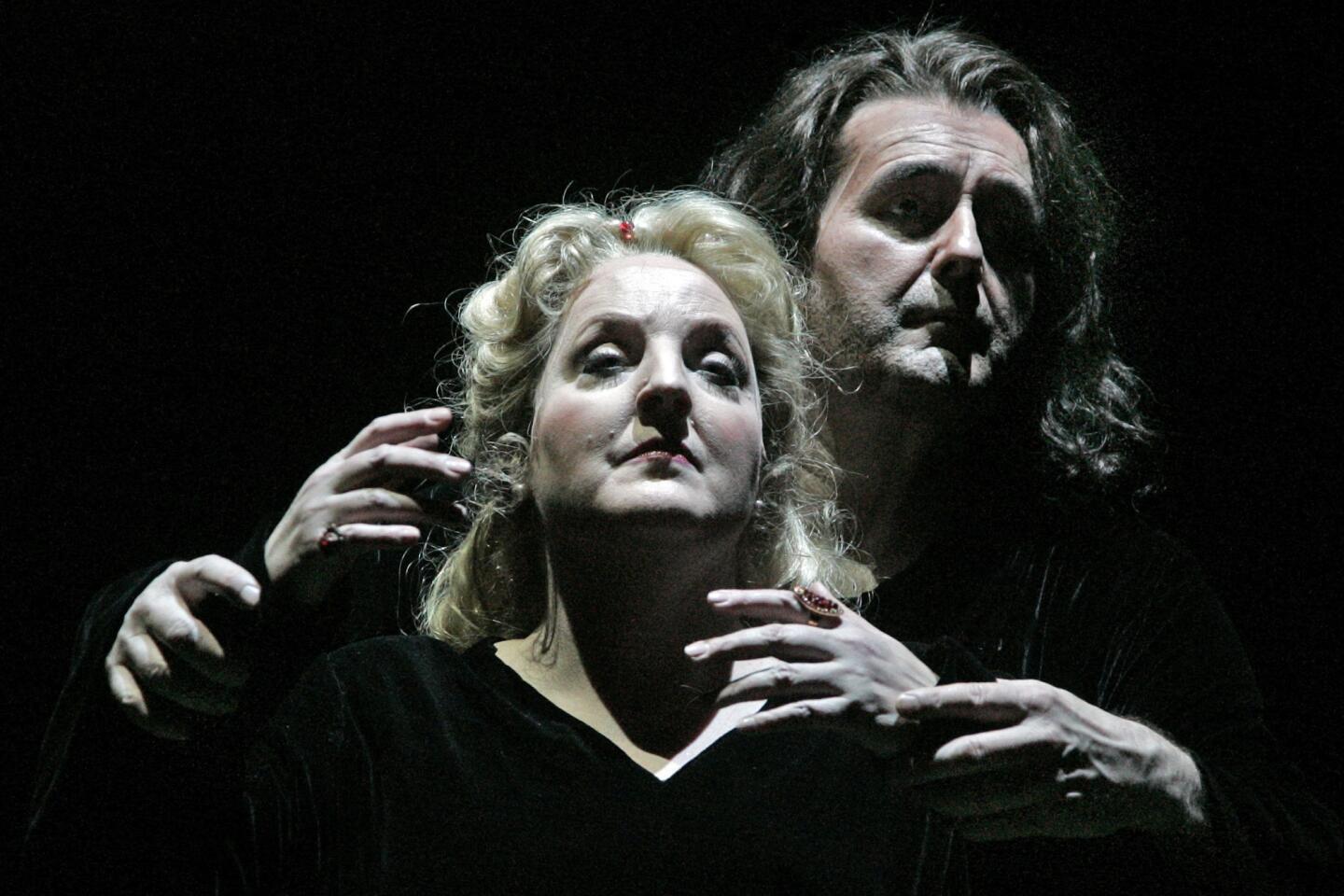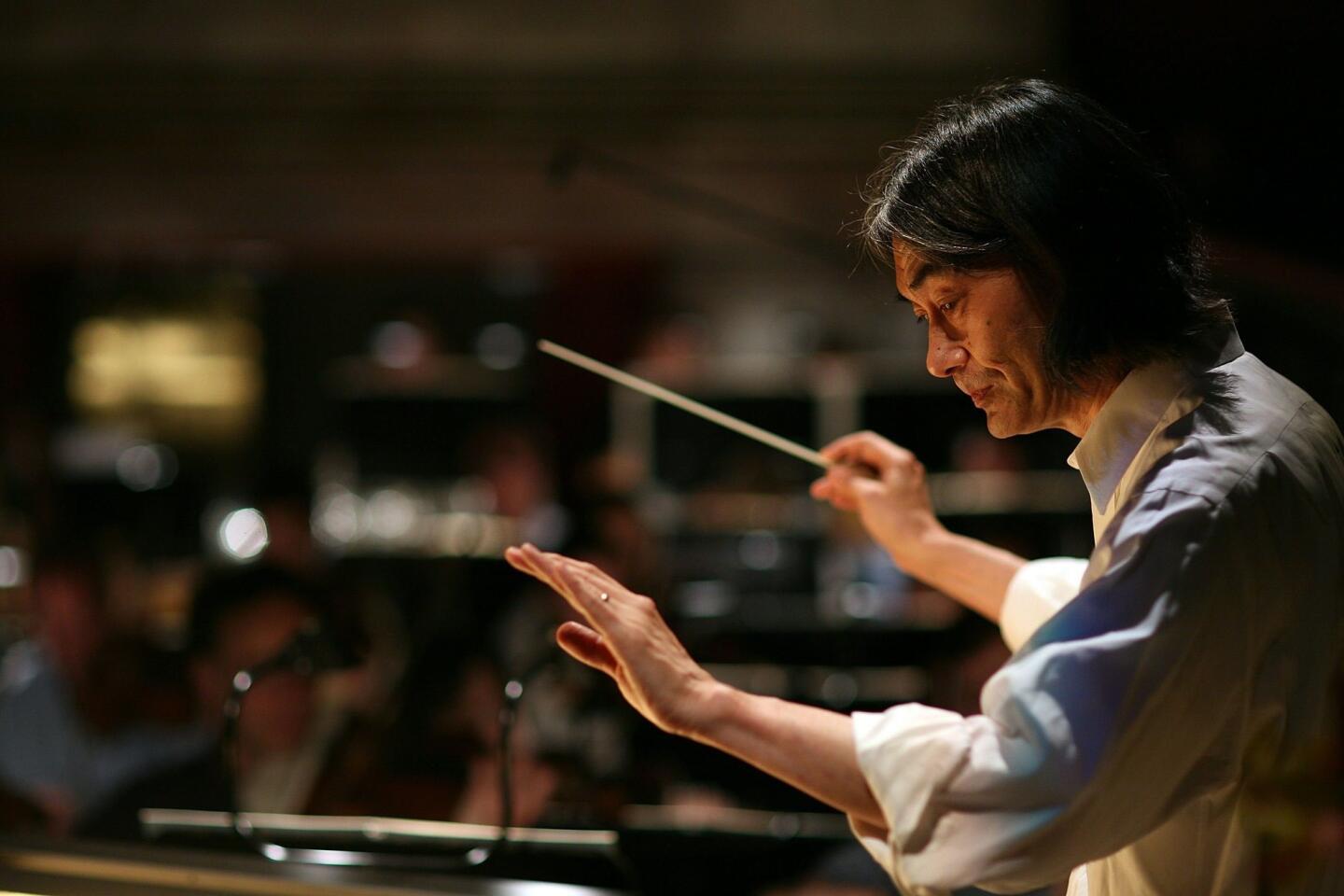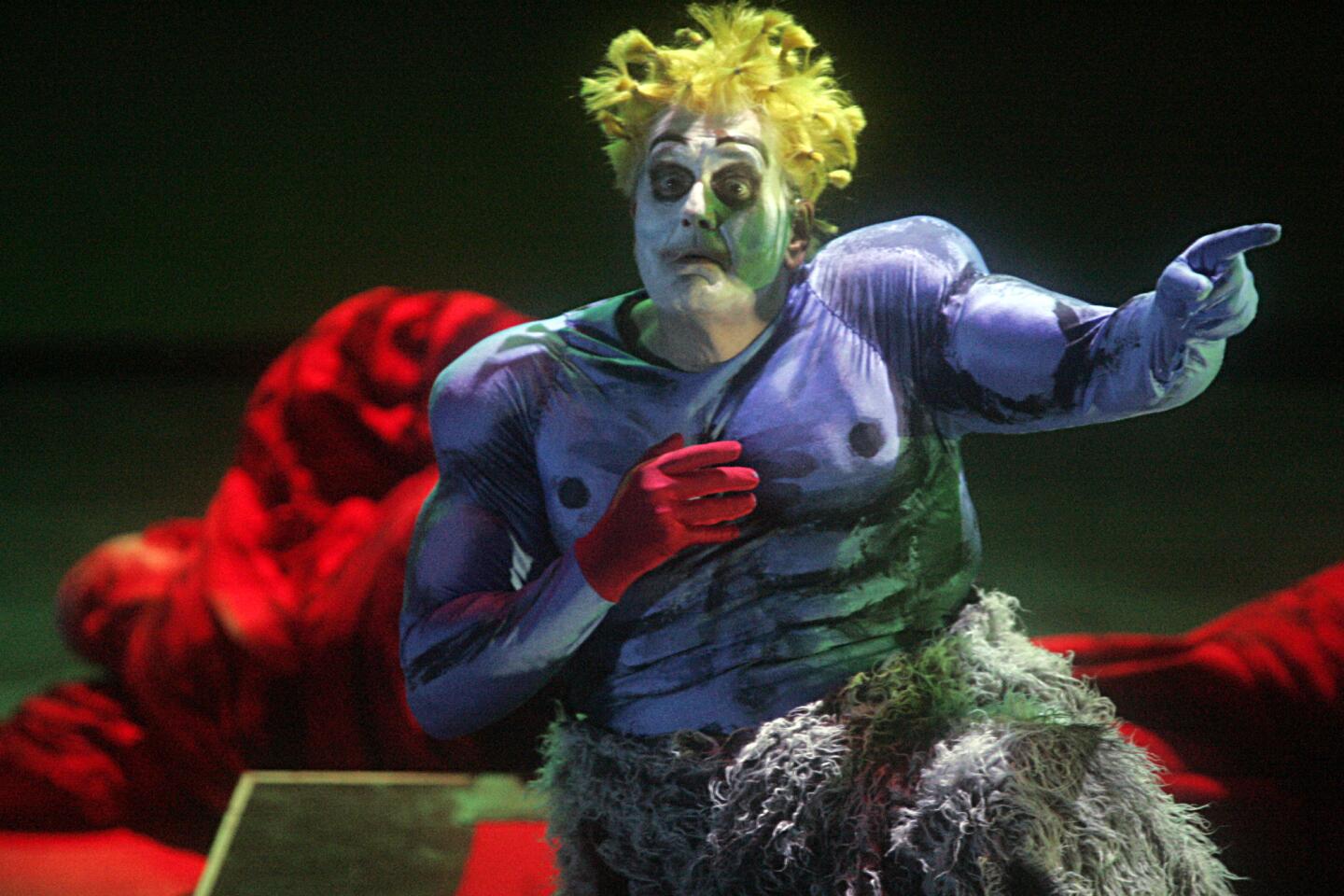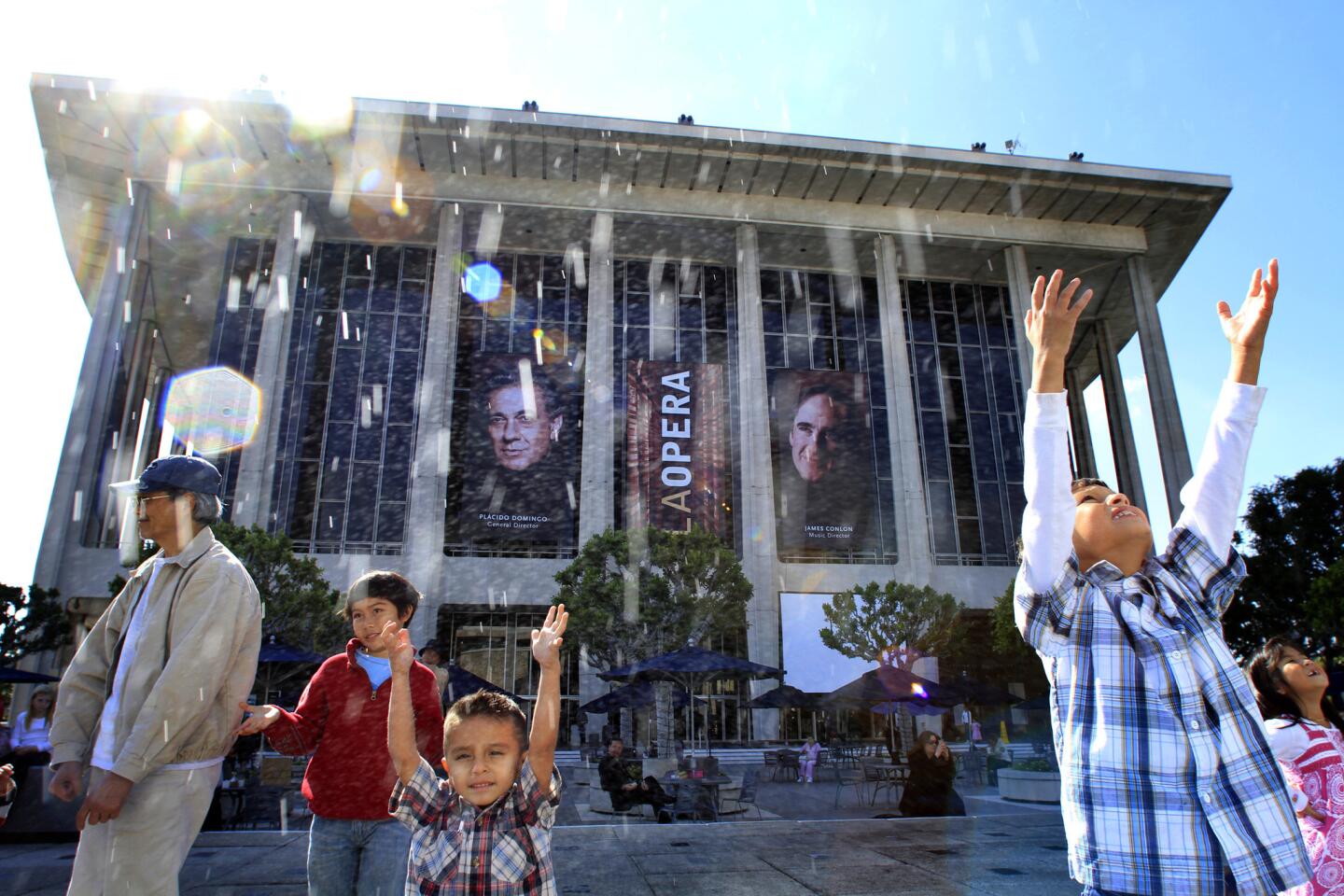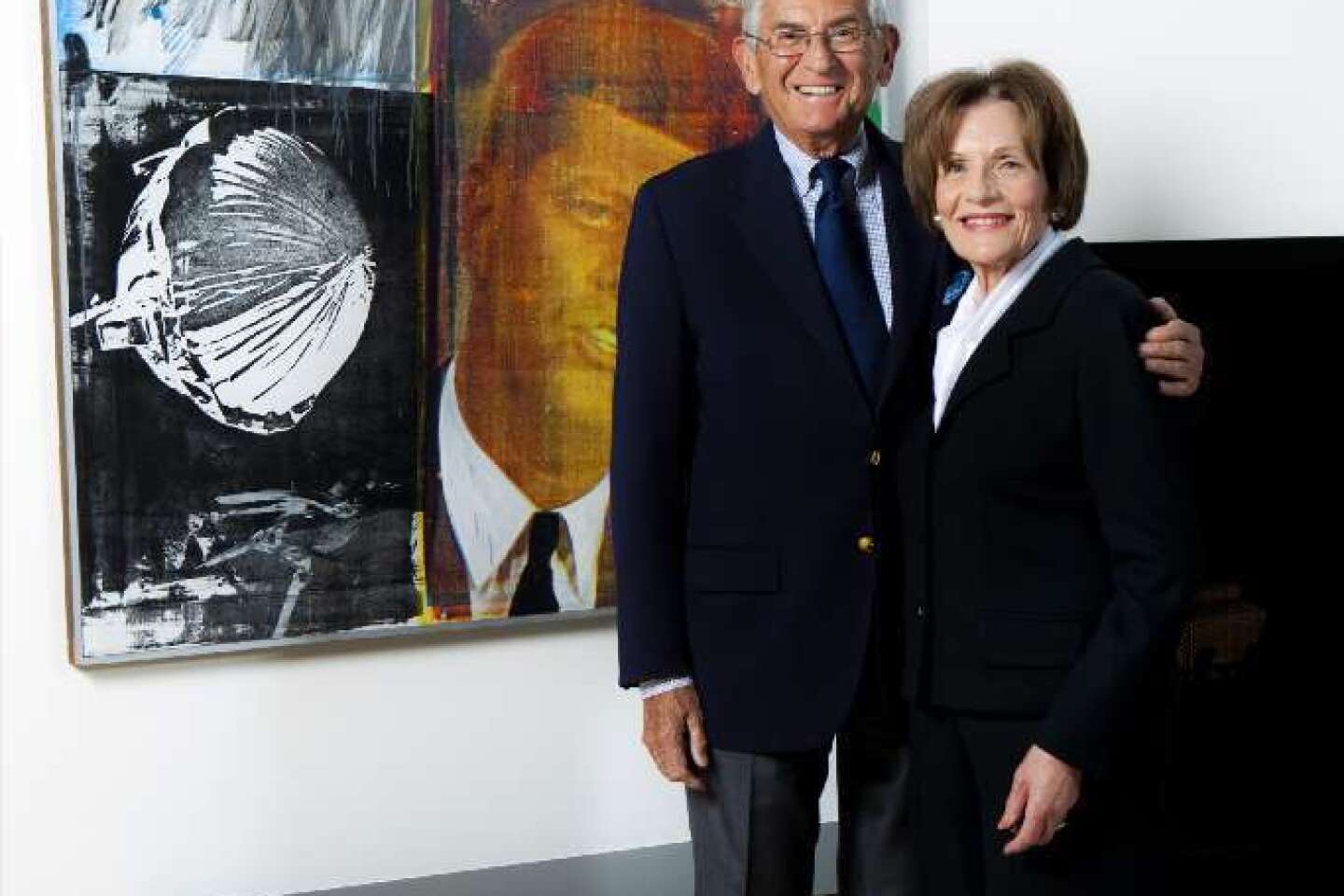Review: Oratory weighs down ‘Last Days of Socrates’
Socrates was said to have been the ugliest man in Athens. We don’t know much about the great thinker on whom modern philosophy is grounded, but we do have a pretty good notion that he had bulging eyes and a disagreeable nose. He was grubby. He was often barefoot. He must have smelled bad.
He was sentenced to death for not recognizing the gods the city recognized and for introducing new ones, as well as for corrupting youth. But he was, no doubt, really executed for being unbelievably annoying. He buttonedholed upstanding citizens in the market place and attempted to break down their defenses and expose the deep-seated fallacies of their beliefs and motivations.
Socrates stood so steadfast to his principles that the philosopher stuck to his vexatious Socratic method at his trial, rather than employ his charisma to gain sympathy. He then refused to flee when he could have. Rather, he accepted his sentence as his devotion to civic duty and, in questioning the meaning of death as he lay dying, lived his ideal of the examined life to the end.
CRITICS’ PICKS: What to watch, where to go, what to eat
That’s the Socrates — intrepid and tragic, not intriguingly pesky or unpleasant — of the “The Last Days of Socrates,” a new hourlong oratorio by Brett Dean that the Los Angeles Philharmonic co-commissioned. Gustavo Dudamel conducted the U.S. premiere Saturday night at Walt Disney Concert Hall.
In a pre-concert talk, the Australian composer spoke of his fascination with the Socratic type that we may find among us today, and he cited the Chinese artist Ai Weiwei, along with fugitives Julian Assange and Edward Snowden, as individuals willing to sacrifice for what they believe in.
But he and his librettist, Australian poet Graeme William Ellis, decided to let Socrates speak for himself, which is to say to let Plato speak for him because Socrates believed in one-to-one dialogue and never wrote anything down. There is, though, one obviously Socratic quote from Ai Weiwei: “Liberty is the freedom to question everything.”
CHEAT SHEET: Fall arts preview
Mainly what Dean has made is a sober, and disappointingly so, Socratic hagiography in three sections for bass-baritone, chorus and large orchestra.
The first part is a hymn to the Goddess Athena. The second is the trial, based on Plato’s “Apology.” In the third, taken from Plato’s “Phaedo,” Socrates drinks hemlock and meditates on the marvel of dying. For Socrates, life is but a rehearsal for death, and he certainly savors the performance here.
Dean, a former violist in the Berlin Philharmonic (which gave the world premiere of the oratorio in April with the Berlin Radio Choir led by Simon Rattle), has become increasingly well known as a composer. Four years ago he won the prestigious Grawemeyer Award for his brilliant violin concerto, “The Lost Art of Letter Writing.” He is a familiar at the L.A. Phil, which has played many of his works, including the U.S. premiere of his captivating Viola Concerto, with the composer as soloist.
PHOTOS: Arts and culture in pictures by The Times
There is much of what is interesting and engaging in Dean’s music to be found in his “Socrates,” but that is mostly in his instrumental writing and in the more unusual choral effects, which were like catnip to the Los Angeles Master Chorale on Saturday.
Each section starts out with the orchestra marvelously creating a mood. Athena is summoned with eerie outer-space sounds from the strings, an electric guitar ethereally strummed with a shaving brush and hushed percussion. The setting for the trial is enhanced by eloquent horn calls. A mysteriously enticing cello cadenza, eloquently articulated by Robert deMaine, that begins the final segment is maybe the enticing hemlock that Socrates treats as a potion for reaching new realms.
And those are just the beginnings of many an instrumental marvel to be found in a complex score that is full of haunting sounds, including string players raining harmonics down from the balcony on high, quirky oboe multiphonics that have an ancient Greek character and some really cool percussion carryings on.
PHOTOS: Operas by Philip Glass
Had Dean written, say, a 20-minute Socrates-themed orchestral tone poem, with a wordless women’s chorus coming in at the end, he might have had a winner. But instead he dutifully illustrates a lumbering libretto that includes many a well-worn Socrates lines and narrative details distilled down to Wikipedia-style basics.
The last moment and release of a philosopher’s soul is a literal swan song, Socrates telling his teary-eyed followers that the swan sings most beautifully as it dies.
Socrates is a bass-baritone, sung with fluency by Peter Coleman-Wright, but blandly declamatory or lyrical vocal lines make too many of the philosopher’s famous quotes sound almost like clichés. The chorus is often saddled with overly conventional oratorio duties, such as serving as the crowd in the trial.
The L.A. Phil’s need for extra rehearsal to prepare this monumental work (one half the size had been expected) meant that its premiere was moved from Thursday to Saturday. It was introduced on the program by Beethoven’s “Ruins of Athens” Overture and Fourth Piano Concerto with Leif Ove Andsnes, repeated from earlier programs.
Dudamel clearly made excellent use of those extra rehearsals. He brought out instrumental details and emphasized dramatic utterances. The performance sounded close to ideal. But the oratorio was a missed opportunity. The Socrates we need today is a maddening deep thinker cajoling composers — or, for that matter, members of Congress — with questions about the real meaning of their actions, storming down the aisles and asking “Why?”
More to Read
The biggest entertainment stories
Get our big stories about Hollywood, film, television, music, arts, culture and more right in your inbox as soon as they publish.
You may occasionally receive promotional content from the Los Angeles Times.
